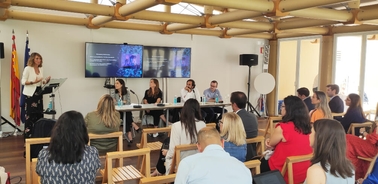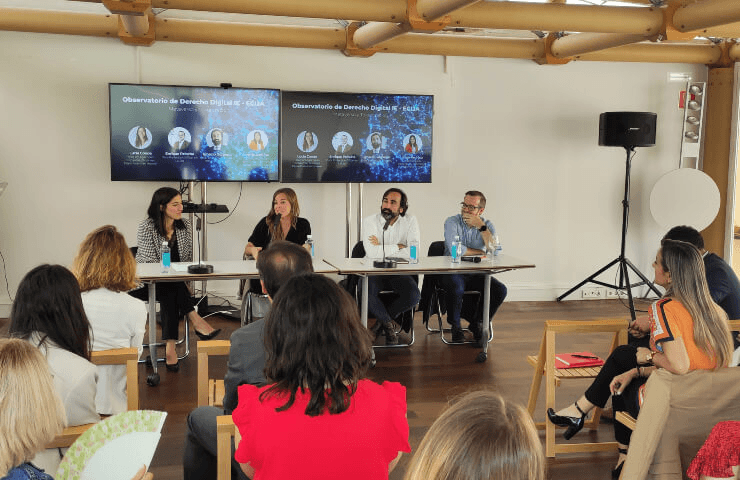- Home
- We Are Law School
- News
- Ie Law School And Ecija Present Their Report On Metaverse And Tokenization
IE Law School and ECIJA present their report on metaverse and tokenization

Experts from companies such as Repsol, Huawei, La Liga or Prosegur participated in the event organized by the IE - ECIJA Digital Law Observatory.
The relevance of cryptoassets and the metaverse is expected to grow significantly in the coming years, necessitating adaptation within the legal profession. To effectively address these new technological phenomena, the legal profession will need to develop its training and expertise in these sectors. This process will also require legislative adaptation to mitigate risks and address situations of legal uncertainty that may arise during this transitional period. This is one of the main conclusions of the report on metaverse and tokenization, which was the result of a previous focus group involving professionals from various sectors.
IE - ECIJA Digital Law Observatory was established with the purpose of exploring and researching the diverse legal dimensions and implications of the digital economy. The Observatory aims to become a platform for legal and academic research and dissemination within this new legal framework.
The event was attended by María Pedrosa, Head of Legaltech and Knowledge Management at Repsol; Lucía Conde, Head of Legal Spain Consumer Business Department at Huawei; Enrique Peloche, Data Protection Officer at La Liga; Ignacio Gurpegui, Chief Intellectual Property Officer at Prosegur; Cristina Villasante, partner at ECIJA and Macarena Plaza, Head of Corporate Development and Legal Innovation at IE Law School and the Academic Director of the Observatory.
During the discussion, several important topics were addressed, including the need for the adaptation of trademark and intellectual property regulations to accommodate the metaverse. Additionally, the legal regulation initiatives concerning cryptoasset markets were examined, with a focus on the European Union's position in leading the way globally.
María Pedrosa, Head of Legaltech and Knowledge Management at Repsol, raised a question regarding the adequacy of European regulations to govern cryptoassets. In response, Enrique Peloche, DPO at La Liga, stated that the regulation of cryptoassets should extend beyond European borders and be approached from an international standpoint.
Regarding the metaverse, virtual reality, and augmented reality spaces on the Internet, beyond their renewed interest after the launch of new devices, the speakers noted that these spaces are still relatively unknown and underutilized. Addressing the barriers to entry from a business perspective, Lucía Conde, Head of Legal Spain Consumer Business Department at Huawei, emphasized the significance of minimal latency for a seamless virtual reality experience. She also highlighted the importance of interoperability in the metaverse to ensure a satisfactory return on investment.
Throughout the conversation, the potential of the metaverse to introduce innovative products and services was highlighted, accompanied by the recognition of new legal challenges they may bring. Ignacio Gurpegui, Chief Intellectual Property Officer at Prosegur, exemplified the benefits within service companies. He explained that incorporating metaverse technology in their operations, such as immersive training for security guards, has the potential to enhance the quality of services provided.
